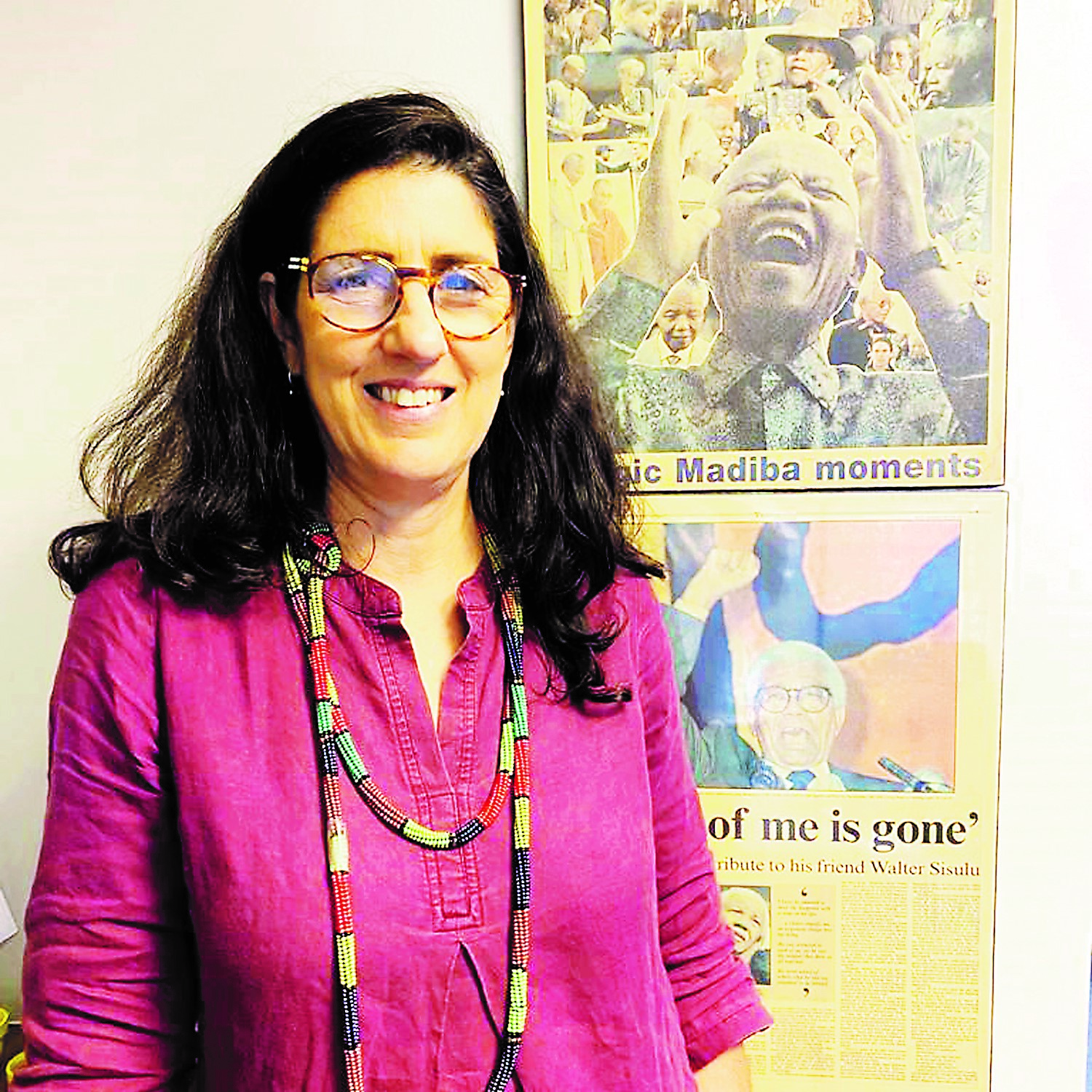click to dowload our latest edition
CLICK HERE TO SUBSCRIBE TO OUR NEWSLETTER


Published
4 years agoon
By
adminNICOLA MILTZ
The daughter of well-known medical personality and radio doctor, Professor Harry Seftel, 91, told the SA Jewish Report this week that she sees her appointment “as an honour and a privilege”.
“I’m excited about it,” she said, pointing out that she is well aware “there will be some challenges”.
This is possibly an understatement given that Nedlac is currently facing a “crisis of legitimacy and confidence”.
Nedlac was established 25 years ago primarily as a platform for social dialogue for stakeholders from government, business, labour, and the community to agree on the direction taken by the country’s economy and labour.
But in recent months, stakeholders have questioned whether the organisation, which has had its fair share of leadership challenges, is still relevant in the face of the country’s dire socioeconomic crisis.
Seftel, 60, an anti-apartheid activist and a former campaign organiser of the Congress of South African Trade Unions (COSATU), strongly believes it is.
“The national-minimum-wage legislation, for example, was initiated at Nedlac,” said Seftel, pointing out that it’s “an acknowledged institution where some very good protocols have been developed, for instance no labour legislation goes to parliament without having come here”.
Seftel, whose employment record in public service dates to 1995, said that she hoped to play an important role in the implementation of President Cyril Ramaphosa’s vision of a social compact.
“Social partnerships are South Africa’s bread and butter, and Nedlac is a unique institution which can only be as strong as its social partners. My challenge is to strengthen the partners.
“There isn’t really a coming together on what business, organised labour, and government believe is the right way for the economy to grow. There are still political and ideological differences. In a sense, people occupy parallel universes,” she said.
Sadly, this reflects our enormous levels of inequality, spatial segregation, and significant racial tension.
“One of the things it was envisioned Nedlac would do was build a more organised social compact. In a sense this didn’t happen.”
Asked whether she was daunted by this new challenge, she quipped, “I suppose daunted is one way of putting it, but I’m not unconfident.
“I’ve been an activist. I’ve worked in government for 25 years. My last job was a very difficult one – working with the minibus taxi industry to transform public transport, establishing the Rea Vaya from Soweto to Joburg. I can manage big challenges. I’m a doer, I’m an implementer.”
Until her appointment at Nedlac, Seftel was the executive director of transport in the City of Johannesburg.
She has also worked at COSATU and the department of labour.
Insiders say she is well equipped to shift leadership gears to enable the organisation to work towards achieving its vision of promoting growth, equity, and participation through social dialogue.
Unlike her warm, charismatic father, Seftel is measured and guarded about her personal life, and is direct in speech and behaviour.
“I like discipline without being a disciplinarian,” she said, pointing out that a good leader is someone who “listens, listens, listens”. This is a strength Seftel has honed over the years as a LifeLine counsellor.
A leader, she said, must also “respect and value other people but have the ability to make decisions, be authoritative, and have feet on the ground”.
The mother of two adult children, a son, 32, and a daughter, 24, she matriculated from Sandown High School, and attended the University of the Witwatersrand. She lives in Parkview, Johannesburg, where she enjoys daily walks in the neighbourhood and surrounds, cooking for friends and going on the occasional hike. She is registered for a masters by dissertation at the Wits School of Governance.
Her stint at Nedlac will last five years, and she’s aware she has her work cut out for her. Her role, which she is still figuring out, includes playing a facilitative role in chairing meetings between social partners, as well as playing an operational role in getting the organisation to function properly, making sure there is an improvement in productivity and service delivery.
“Nedlac is a hub, the place where government comes together with organised business, organised labour, and organised community groups on a national level to try to reach consensus on issues of social and economic policy to promote the goals of economic growth and social equity,” she says.
“Being in touch with local reality is very important, and that’s what I appreciated working in local government. Effectiveness in the boardroom is about having the ability to understand the pulse of our nation and the different constituencies. I hope I get an opportunity to experience the realities of the other social partners.”
In her curriculum vitae, Seftel describes herself as “a strong, assertive personality who is not fearful to take on difficult challenges”. She says that she has a “high capacity to think out of the box for implementable and sustainable solutions”, and that she is “able to resolve complex problems and address conflict situations” – all traits she will no doubt rely on in the next five years.
